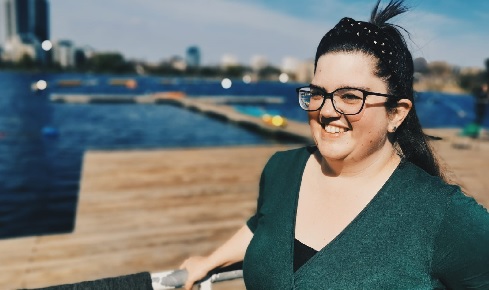Policy Profile: Lauren MᶜLeod MRSB

What do you do at the RSB?
The RSB’s education policy team is focused on teaching and learning at primary, secondary and tertiary levels. Our work is led by input from a range of committees, our Member Organisations, and from a diverse range of people, whether it's higher education and school teachers or employers.
I also convene groups of partner science organisations, such as the Association for Science Education, the Institute of Physics, the Royal Society and the Royal Society of Chemistry – with the aim of facilitating coordinated approaches to education policy across the sciences.
I often describe my role as synthesising and disseminating policy ideas, either from the bioscience education community to policymakers, regulatory bodies and awarding organisations, or in the opposite direction. We take a long term view on big changes we want to make in bioscience education, but we also work more reactively, for example in responding to ideas from government.
What’s your background? How did you get into education policy?
I started off as a science teacher in North London. While I was completing my Master's in science education, I took on a part-time job at the Institute of Physics, where I worked on projects looking at countering gender stereotyping and, again, improving opportunities to get into the sciences.
Do you miss teaching science?
I miss being in the classroom and I miss guiding students through topics. And actually I miss doing practical work with students, because it allowed me to do a bit of science on a daily if not hourly basis. But I don't miss the long hours that creep in to your holidays or not being able to have a cup of tea when I want!
What are the big issues in science education at the moment?
Curriculum and qualifications are the main thing, and diversity and inclusion. They are both part of our work to ensure everybody has an equal opportunity to continue studying the sciences.
The pandemic has exacerbated a lot of pre-existing issues in the education sector, which has led to a lot of challenges but potential opportunities too. We've probably lost progress in increasing diversity and access to the sciences, due to the changes made in the ways qualifications were awarded and difficulties with access to learning. But there's also opportunities around considering whether our forms of assessment are really fit for purpose.
We’ve had an incredibly busy year responding to all of the changes made across all the different nations very quickly – I probably wrote as many consultation responses in six months last year as I did in my first three years here. Now we're at a point where we're thinking about the broader and longer term impact of the pandemic to education. There is a need for a drastic long-term plan to mitigate the impact of the pandemic on science education, for example thinking about ensuring the security and diversity of the STEM pipeline of the next ten years after the disruption to education at all levels.
Lauren MᶜLeod MRSB is head of education policy at the RSB.


